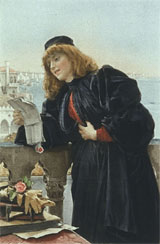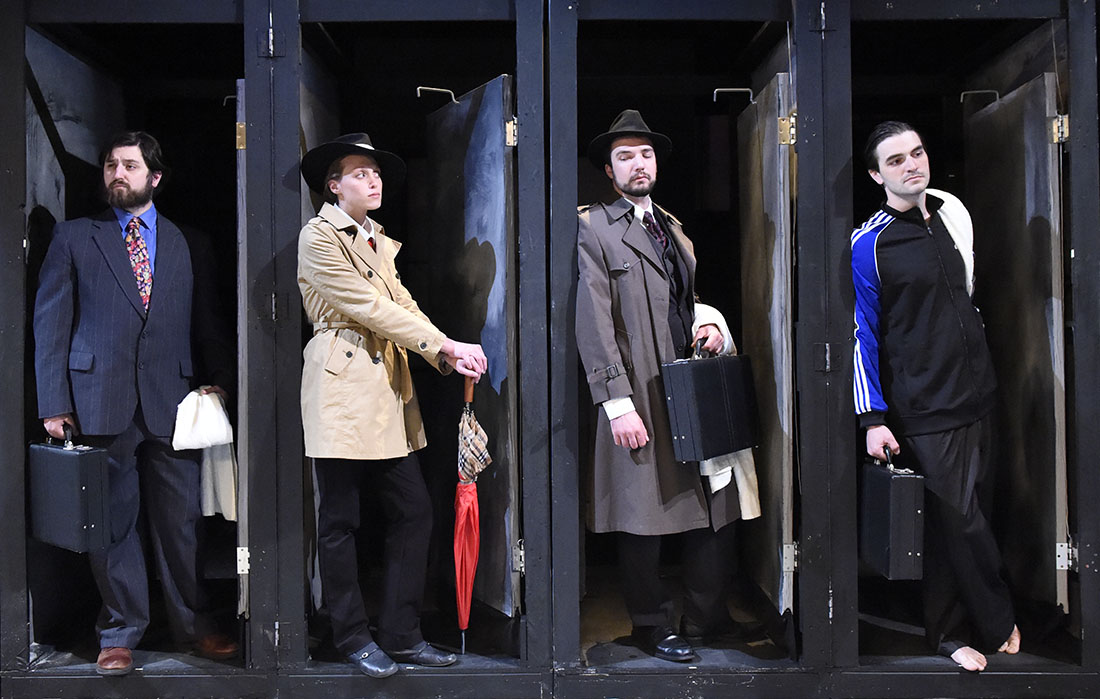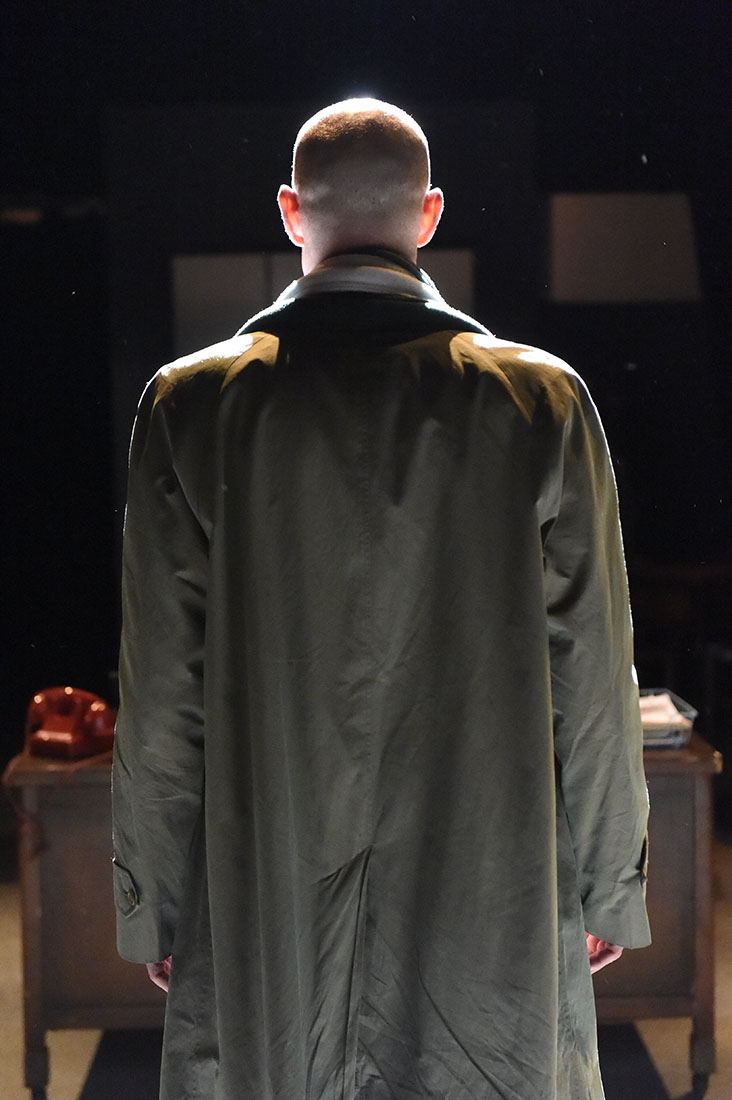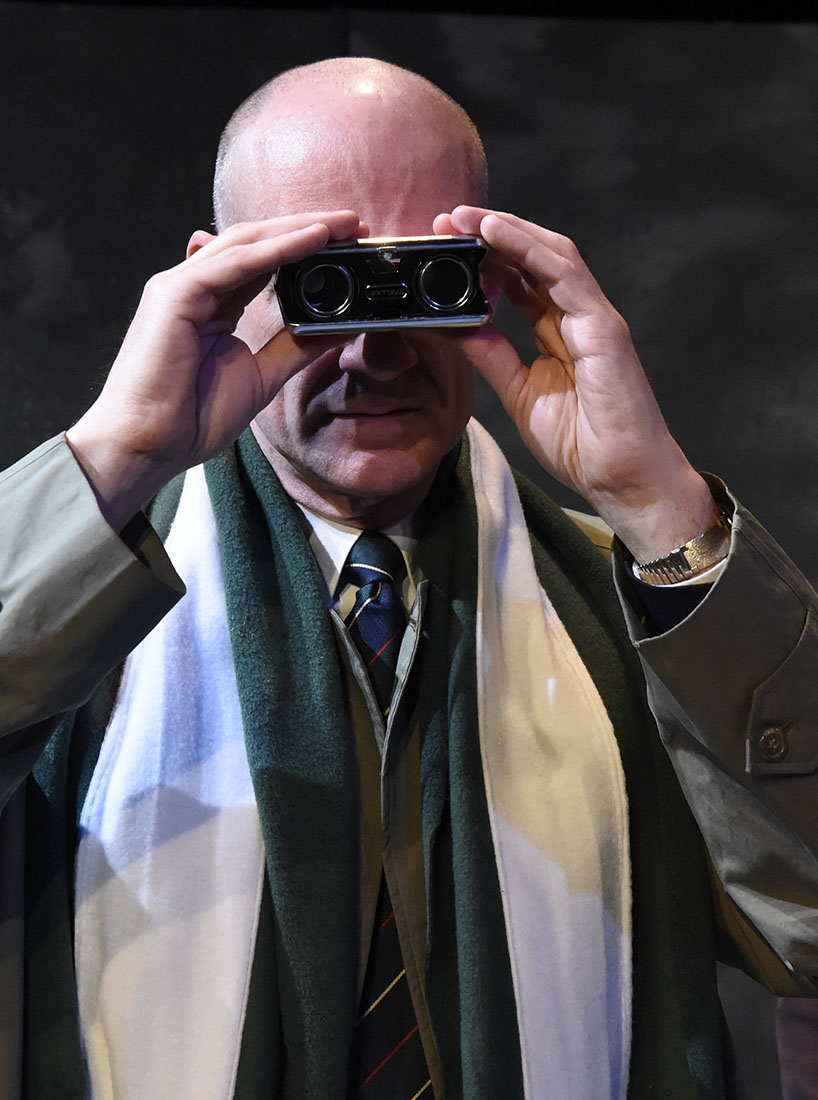 When Shakespeare sat down to write The Merchant of Venice, he was tapping into the well-established Elizabethan genre of the “Jewish Villain”. After The Merchant of Venice itself, Marlowe’s The Jew of Malta is the most famous example of the genre, but it was only one among a dozen or more plays of the same type which had been written in the 1580’s and early 1590’s.
When Shakespeare sat down to write The Merchant of Venice, he was tapping into the well-established Elizabethan genre of the “Jewish Villain”. After The Merchant of Venice itself, Marlowe’s The Jew of Malta is the most famous example of the genre, but it was only one among a dozen or more plays of the same type which had been written in the 1580’s and early 1590’s.
And the genre was currently hot stuff.
In 1594, Queen Elizabeth’s personal physician, Rodrigo Lopez, was convicted as part of a conspiracy to poison the the queen. Lopez was a converted Jew from Portugal, and his identity as a marrano (or hidden Jew) played a major role in the publicity surrounding his trial.
The salacious nature of the case hyped interest in Jewish villain plays. For example, The Jew of Malta, originally produced in 1589, enjoyed renewed success and a fresh spike of interest that lasted for several years (as indicated in Henslowe’s Diary by the frequent performances it received). So The Merchant of Venice, like a modern Hollywood blockbuster, was pretty much calculated to take advantage of the current theatrical trends.
One can see the influence of the genre on The Merchant of Venice when Shylock first turns to address the audience and, like Marlowe’s Barabas, uncloaks his villainy:
How like a fawning publican he looks.
I hate him for he is a Christian:
But more for that in low simplicity
He lends out money gratis, and brings down
The rate of usance here with us in Venice.
If I can catch him once upon the hip,
I will feed fat the ancient grudge I bear him.
He hates our sacred nation, and he rails
Even there where merchants most do congregate
On me, my bargains, and my well-won thrift,
Which he calls interest: Cursed be my tribe
If I forgive him.
But in the process of creating Shylock, Shakespeare applied his natural instincts as a playwright. There are few authors in the history of the world with Shakespeare’s grasp of human psychology or his ability to evoke it in his characters. Shakespeare couldn’t simply conjure up the image of a Jewish boogeyman on the stage; he needed to understand the root and nature of it. He needed to create Shylock’s soul. And a few lines later, he begins to find it:
Signior Anthonio, many a time and oft
In the Rialto you have rated me
About my moneys and my usances:
Still have I borne it with a patient shrug
(For sufferance is the badge of all our Tribe);
You call me misbeliever, cut-throat dog,
And spit upon my Jewish gaberdine,
And all for use of that which is mine own.
Well then, it now appears you need my help:
Go to then, you come to me, and you say,
“Shylock, we would have moneys”, you say so:
You that did void your rheum upon my beard
And foot me as you spurn a stranger cur
Over your threshold, moneys is your suit.
What should I say to you? Should I not say
“Hath a dog money? Is it possible
A cur can lend three thousand ducats?” Or
Shall I bend low, and in a bondman’s key,
With bated breath and whisp’ring humbleness,
Say this: “Fair sir, you spit on me on Wednesday last,
You spurn’d me such a day, another time
You call’d me dog: And for these courtesies
I’ll lend you thus much moneys”?
What would drive a man to such depths of villainy? Revenge. Revenge for his way of life being mocked. Revenge for his livelihood being threatened. Revenge for being treated like a dog. Revenge for his daughter being stolen from him.
The result is a deeply unsettling play because, even as it takes the form of an anti-semitic genre, Shakespeare’s gifts create a completely believable, psychologically rich, and utterly believable Jewish character to serve as its villain. It is much easier to deal with bigoted literature when it stars vapid, mindless caricatures. But it is deeply disturbing when a genius finds exactly the buttons necessary to turn the soul of man into the most horrific stereotypes and then proceeds to relentlessly push them.
It has been argued that The Merchant of Venice was designed from the beginning to highlight Christian hypocrisy and the painful dangers of bigotry. I don’t know if that’s true (there’s much to suggest that it isn’t). But as we delved into the play, I became increasingly certain of this: As he explored the hateful depths of the Christian bigotry he used to create Shylock’s villainy, Shakespeare found that he didn’t like it very much.
Beyond the ambiguous boundaries of the play itself, consider Shakespeare’s later contribution to Sir Thomas More. More has confronted a riot of Englishmen seeking to attack and exile immigrants:
Grant them removed, and grant that this your noise
Hath chid down all the majesty of England;
Imagine that you see the wretched strangers,
Their babies at their backs and their poor luggage,
Plodding tooth ports and costs for transportation,
And that you sit as kings in your desires,
Authority quite silent by your brawl,
And you in ruff of your opinions clothed;
What had you got? I’ll tell you: you had taught
How insolence and strong hand should prevail,
How order should be quelled; and by this pattern
Not one of you should live an aged man,
For other ruffians, as their fancies wrought,
With self same hand, self reasons, and self right,
Would shark on you, and men like ravenous fishes
Would feed on one another.
Shakespeare characterizes those who would act on their racist impulses as specifically destroying “the majesty of England” in one of the most effective evocations of the dangers of irrational bigotry in all of English literature. How easy is it to see Gratiano’s bull-headed racism in The Merchant of Venice as one of those “other ruffians” that “with self same hand, self reasons, and self right would shark on you”?
And then there’s this: Phrases like “I am a Jew if I don’t do X” and “if you don’t do X, then you are a Jew” were a common parlance in Elizabethan English. Given this important context, consider anew Shylock’s most famous speech:
I am a Jew: Hath not a Jew eyes? Hath not a Jew hands, organs, dimensions, senses, affections, passions? Fed with the same food, hurt with the same weapons, subject to the same diseases, healed by the same means, warmed and cooled by the same winter and summer, as a Christian is? If you prick us do we not bleed? If you tickle us do we not laugh? If you poison us do we not die? And if you wrong us, shall we not revenge? If we are like you in the rest, we will resemble you in that. If a Jew wrong a Christian, what is his humility? Revenge. If a Christian wrong a Jew, what should his sufferance be by Christian example? Why, revenge. The villany you teach me I will execute, and it shall go hard but I will better the instruction.
I am a Jew. In saying that, Shylock is claiming for himself something which was inherently shunned in the language of the time. And then he transforms it and humanizes it. He forces the audience to put themselves into his shoes.
Shakespeare, too, had used the “I am a Jew” turn of phrase routinely, turning it into a punchline for Two Gentlemen of Verona (twice), Henry IV Part 1, and Much Ado About Nothing. He also used other Jew jokes in Love’s Labours Lost and A Midsummer Night’s Dream.
But after writing The Merchant of Venice, Shakespeare abruptly stopped using Jew jokes. In fact, depending on when one dates the composition of Much Ado About Nothing, after writing The Merchant of Venice, Shakespeare never used another Jew joke (although he would continue writing for another 15-20 years).
We know this wasn’t a shift in the language: Other writers were still using the phrase. But in writing The Merchant of Venice something had shifted in Shakespeare. In creating the soul of Shylock, he had transformed his own.
Originally posted on December 6th, 2010.















